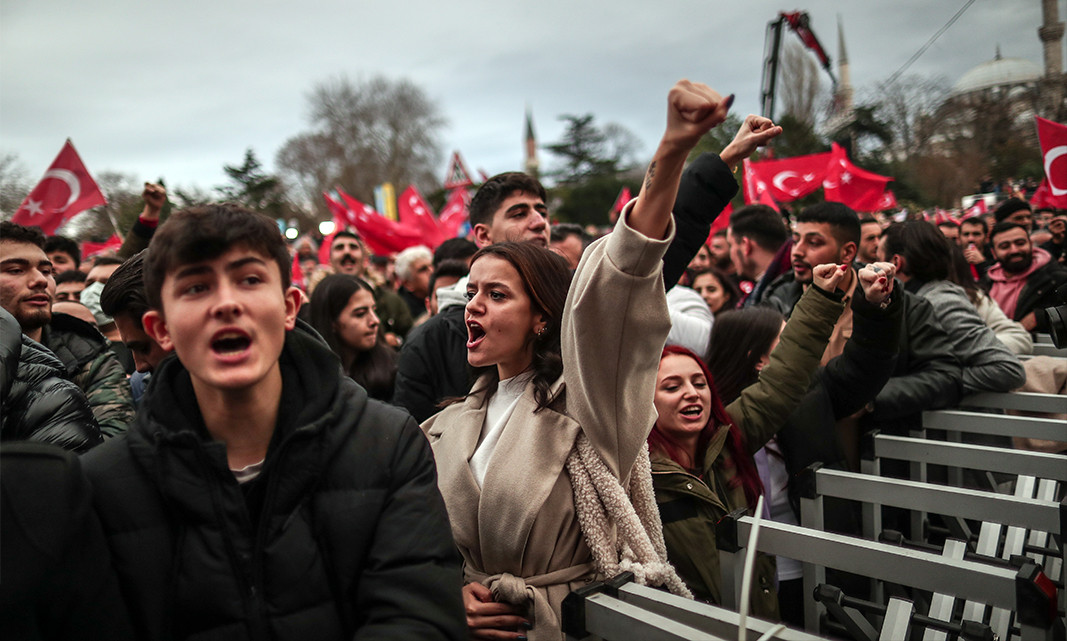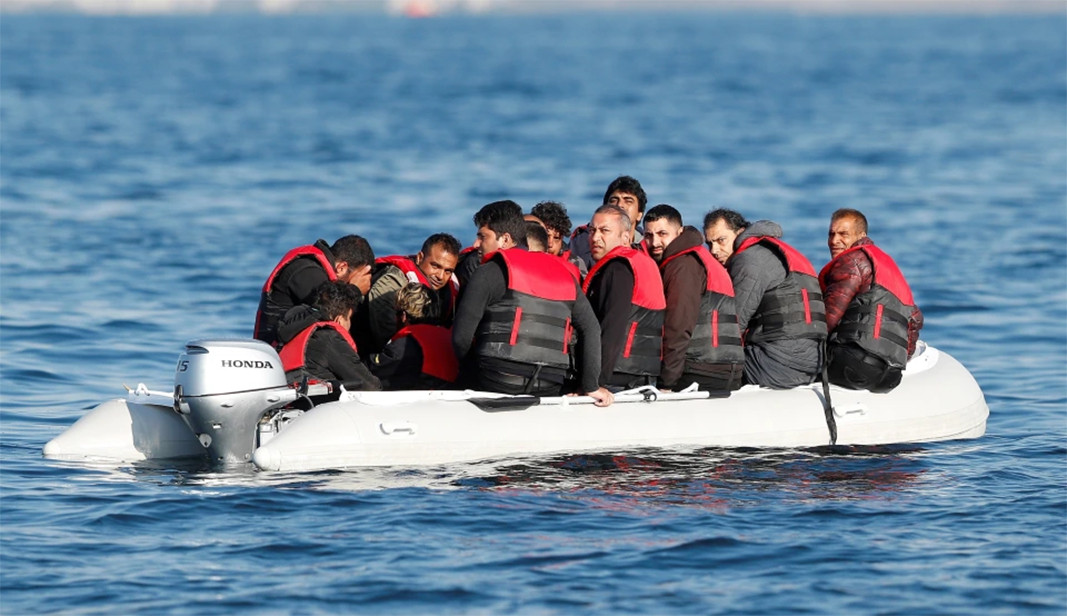Mayor of Istanbul sentenced to prison for insulting high ranking public officials

A Turkish court convicted the mayor of Istanbul Ekrem Imamoglu, at first instance, sentencing him to two years and seven months of imprisonment on charges of insulting high ranking officials. The court decision, which is subject to appeal at the Supreme Court, triggered rallies in solidarity with Ekrem Imamoglu. The protests are organized by the leaders of the so-called “table of 6”, an opposition alliance of six parties of different ideologies united by the idea of nominating a joint candidate against Erdogan at next year’s presidential election, and of a return from presidential to parliamentarian rule in the country.

The court ruling is described as political, and aimed at eliminating Imamoglu – one of Erdogan’s most powerful opponents. The EU describes the sentence as “disproportionate” and “a major setback for democracy in Turkey”.
Kosovo submits official application for EU membership

The Prime Minister of Kosovo Albin Kurti has submitted his country’s application for membership of the EU. Kurti stated it was realistic to expect the country to become a member of the union in 9 years, KosovaPress reports. But before that, Kosovo will have to normalize its relations with Serbia. The EU is already working to improve the dialogue between the two countries. Kosovo has been recognized as an independent state by around 110 countries, though not by Serbia, Russia, China and 5 EU countries - Cyprus, Greece, Romania, Slovakia and Spain.
According to Albin Kurti, next year Kosovo will submit an application for membership in the NATO Partnership for Peace programme.
Serbia to request permission to deploy troops in Kosovo

Serbia will ask for permission from the NATO peacekeeping forces in Kosovo to deploy Serbian forces in Northern Kosovo. President Aleksandar Vučić announced he would make the request even though he does not believe it is likely to be approved. His statement comes after a string of incidents between the Kosovo authorities and Serbs who constitute a majority in the Northern regions of Kosovo. This is the first time Belgrade is requesting the deployment of troops in Kosovo, in accordance with the UN Security Council Resolution which put an end to the 1998-1999 war when NATO intervened in support of Kosovo and against Serbia. The resolution stipulates that Serbia can deploy up to 1,000 military staff, police and customs officials at Orthodox religious sites, areas with Serb majorities and border crossings, if such a deployment is approved by KFOR’s commander.
Britain reaches agreement with Albania on stemming illegal immigration

Great Britain has reached a new agreement with Albania on reducing the number of illegal immigrants coming to the UK by small boats across the English Channel. British Prime Minister Rishi Sunak announced that he will end a backlog of nearly 100,000 asylum claims by the end of 2023, as part of an attempt to reform the UK’s immigration system, the Guardian writes. According to data of the British government, the stream of Albanian migrants across the English Channel has increased dramatically to 12,000 for this year, a 4,000% increase compared to 2021, BNR’s correspondent in London Veselin Paunov reports. The increase in Albanian crime rates is also cause for concern. According to a government report, there are almost 1,400 Albanians in prison in England and Wales. British immigration minister Robert Jenrick said it is “very hard” to see how Albanians should be able to successfully claim asylum when they come from a “demonstrably safe” country. “The principle that we come from is that a safe country like Albania should be excluded from the right to claim asylum,” he stated.
Romania bans the use of Russian antivirus software by public authorities

Romania’s President Klaus Iohannis promulgated a law on protecting the information systems of the authorities and public institutions in light of the Russian invasion of Ukraine. The law bans the use, by government bodies, of antivirus software, originating directly or indirectly from the Russian Federation. The reason is that against the backdrop of Russia’s war against Ukraine, the Kremlin could use the software for cyberattacks. Even though the law does not explicitly say so, it is clear that the measure targets the products and services of Russia’s biggest cybersecurity company Kaspersky.
Compiled by Miglena Ivanova
Photos: EPA/BGNES, REUTERS, ispionline.it, romania-insider.com
Bulgaria’s National Assembly rejected President Rumen Radev’s veto on the amendments that expand the powers of the special commercial administrator of Lukoil, reported BNR’s correspondent Maria Fileva. The MPs from the ruling majority, supported by..
President Rumen Radev has vetoed the legislative amendments related to the appointment of a special commercial administrator in the Lukoil refinery in Burgas. The head of state said that the amendments undermine the legal order in..
Convulsions Before Multipolarity — a Time When Illusions Are Sacred and Truth Is Heresy is the title of a new book that will be officially presented in early November in Sofia. It explores the agony of a unipolar world, an era of geopolitical..

+359 2 9336 661
